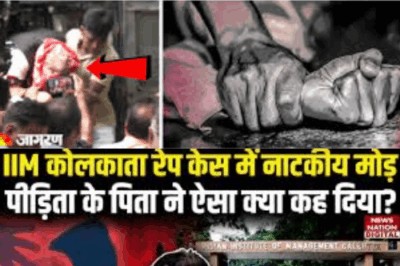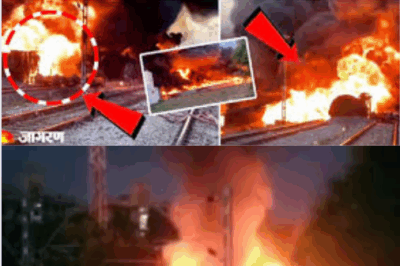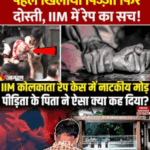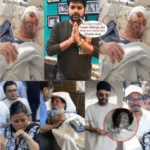Tennis Player Radhika Yadav Shot Dead By Father Over Making Instagram Reels In Gurugram
.
.
.
Tragedy in Gurugram: State Tennis Star Radhika Yadav Shot Dead by Father Over Instagram Reels
Gurugram, Haryana — In a horrifying turn of events that has shocked the nation and cast a grim spotlight on generational divides, 25-year-old state-level tennis player Radhika Yadav was shot dead by her own father on Thursday morning. The reason, police say, was her passion for making Instagram Reels—a passion that her father, Deepak Yadav, could neither understand nor accept.
The incident has ignited a nationwide conversation about the pressures faced by young women, the perils of social media stardom, and the tragic consequences that can arise from deep-seated family conflicts.

The Shocking Incident
According to police reports, the tragedy unfolded at around 10:00 a.m. in the Yadav family’s residence in a quiet Gurugram neighborhood. Radhika, a celebrated tennis player with a string of state and national titles to her name, was at home when an argument erupted between her and her father. The subject: her frequent posting of short-form videos—commonly known as “Reels”—on Instagram.
Eyewitnesses and police sources confirm that the argument quickly escalated. In a fit of rage, Deepak Yadav, 49, reportedly retrieved a licensed firearm from his bedroom and fired five rounds at his daughter. Three bullets struck Radhika, fatally wounding her. She was rushed to a nearby hospital by neighbors, but was declared dead on arrival.
Deepak Yadav was arrested at the scene by Gurugram police and is currently in custody, facing charges of murder and illegal use of a firearm.
A Rising Star Silenced
Radhika Yadav was not just another social media user. She was a promising athlete who had brought honor to her family and her state. Known for her powerful serve and relentless determination, Radhika had competed in several state and national tournaments, earning a reputation as one of Haryana’s most talented young tennis players. She was also a regular at local tennis academies, where she trained aspiring players and inspired many young girls to take up the sport.
But Radhika’s ambitions stretched beyond the tennis court. Like many young people in India today, she was captivated by the world of social media. Her Instagram account, which had amassed thousands of followers, featured a blend of tennis highlights, fitness routines, and personal moments. Her Reels—short, energetic videos often set to music—showcased both her athleticism and her vibrant personality.
Friends say she dreamed of becoming an influencer, using her platform to motivate and connect with a new generation of sports enthusiasts. For Radhika, social media was not a distraction; it was a tool for empowerment, self-expression, and community building.

A Family Divided
Yet, within her own home, Radhika’s aspirations were met with resistance. According to police interviews and testimonies from family friends, Deepak Yadav, a businessman and former athlete himself, held traditional views about privacy, reputation, and the role of women in society. He reportedly disapproved of his daughter’s public presence online, fearing that her videos would attract unwanted attention or bring shame to the family.
Neighbors recall hearing frequent arguments between father and daughter, often centered on Radhika’s social media activity. While her mother and younger brother supported her ambitions, Deepak’s opposition grew more intense as Radhika’s online following increased.
“He was very strict,” said a neighbor who wished to remain anonymous. “He wanted her to focus only on tennis and studies. He didn’t like the idea of her sharing videos online.”
The Fatal Confrontation
On the morning of the shooting, tensions reportedly boiled over when Deepak discovered that Radhika had posted a new Reel the previous night—a video celebrating a recent tournament win. According to the police, Deepak confronted Radhika in the living room, demanding that she delete her Instagram account and stop making videos altogether.
Radhika, who had faced similar demands before, refused. She argued that her online presence was an extension of her tennis career, helping her secure sponsorships and connect with fans. The argument escalated, and in a moment of uncontrollable anger, Deepak reached for his gun.
The sound of gunshots shattered the morning calm, drawing neighbors into the street and prompting an immediate call to the police. Within minutes, officers had arrived at the scene, arresting Deepak and sealing off the house for investigation.
Community in Mourning
The news of Radhika’s death spread quickly through Gurugram and the wider Indian sports community. At her tennis academy, coaches and students gathered in shock and disbelief, laying flowers and lighting candles in her memory.
“She was a role model,” said Priya Singh, a fellow player. “She worked so hard and always had time for everyone. She inspired so many girls to play tennis and be confident in themselves.”
Social media, the very platform that had become a source of conflict in Radhika’s life, exploded with tributes. Hashtags like #JusticeForRadhika and #StopHonorKillings began trending on Twitter and Instagram, as thousands expressed outrage and grief over the senseless loss.
A National Conversation
Radhika’s murder has sparked a wider debate in India about the generational rift between parents and children, the pressures faced by young women, and the dangers of toxic masculinity and control within families.
Experts point out that while India has made significant progress in women’s rights and digital literacy, many families still struggle to adapt to changing norms around social media, autonomy, and self-expression.
“Social media is a double-edged sword,” said Dr. Meera Sharma, a psychologist specializing in family dynamics. “For many young people, it’s a source of empowerment and community. But for some parents, it represents a threat to traditional values. When communication breaks down, the consequences can be tragic.”
The Dark Side of Social Media Fame
Radhika’s story also highlights the risks faced by young influencers in India, especially women. Online harassment, trolling, and abuse are common, and the pressure to maintain a perfect image can take a toll on mental health. For Radhika, the challenge was compounded by opposition from within her own family.
Despite these challenges, friends say Radhika remained optimistic and resilient. She often spoke about using her platform to raise awareness about women’s sports and to encourage other girls to pursue their dreams—regardless of obstacles.
“She wanted to show that girls can do anything,” said her childhood friend, Anjali Verma. “She wasn’t afraid to be herself, even when it was hard.”
Calls for Justice and Reform
As the investigation continues, activists and women’s rights organizations are calling for swift justice and greater protections for women and young people seeking autonomy in their lives.
“This is not just a family tragedy—it’s a societal failure,” said Renu Sharma of the NGO Women’s Voice. “We need to address the root causes of violence against women, including the control and policing of their choices by family members.”
Legal experts note that while India has strict laws against domestic violence and honor killings, enforcement remains inconsistent, and cultural attitudes can hinder justice.
Remembering Radhika
In the days since her death, Radhika’s friends, coaches, and fans have come together to celebrate her life and achievements. At a memorial service held at her tennis academy, speakers recalled her infectious energy, her sportsmanship, and her unwavering commitment to her dreams.
“She was more than just a player—she was a leader,” said her coach, Rajesh Kumar. “She taught us all the value of hard work and never giving up.”
Many hope that Radhika’s story will serve as a catalyst for change, inspiring families to support their children’s aspirations and encouraging society to embrace, rather than fear, the opportunities offered by new technologies.
Conclusion: A Life Cut Short, A Legacy That Endures
The murder of Radhika Yadav is a tragedy that has left a community—and a country—in mourning. It is a stark reminder of the dangers that can arise when generational divides are left unaddressed, and when control and violence are used to silence the dreams of the young.
As India grapples with the implications of this heartbreaking case, the hope is that Radhika’s legacy will endure—not just in the trophies she won or the followers she inspired, but in the conversations and changes her story has sparked.
For now, friends and supporters continue to share her Reels, her match highlights, and her message of confidence and courage. In doing so, they keep alive the spirit of a young woman who dared to dream—and who paid the ultimate price for her right to be seen and heard.
play video:
News
Rape in IIM Calcutta’s boys hostel, girl made unconscious after feeding her pizza
Rape in IIM Calcutta’s boys hostel, girl made unconscious after feeding her pizza Kolkata, July 2025 — A city still reeling from…
Tamil Nadu train fire: The area was shaken after seeing the huge flames in the diesel goods train!
Tamil Nadu train fire: The area was shaken after seeing the huge flames in the diesel goods train! A dramatic…
Tennis Player Radhika Yadav Murder: Inam-ul-Haq broke silence on Radhika
Tennis Player Radhika Yadav Murder: Inam-ul-Haq broke silence on Radhika In a candid conversation, Radhika Yadav recently shared her perspective…
Kapil Sharma Admit to Hospital after 5 Gunshots😱 and Life-Threatening Incident!
Kapil Sharma Admit to Hospital after 5 Gunshots😱 and Life-Threatening Incident! On July 10, 2025, a day meant to celebrate…
Kapil Sharma Reacts on Live after Gun Shot on Him and Life Threat begging Safety for his Life!
Kapil Sharma Reacts on Live after Gun Shot on Him and Life Threat begging Safety for his Life! In the…
Texas Flood Update: Floods wreak havoc in America, Trump arrives to take stock
Texas Flood Update: Floods wreak havoc in America, Trump arrives to take stock In early July, Central Texas was slammed…
End of content
No more pages to load












